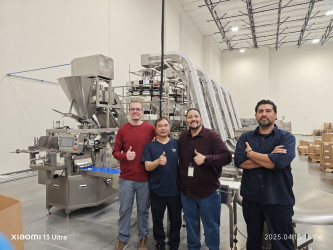The Impact of Automatic Conveyor Systems on Production Quality
Introduction: Automatic conveyor systems have revolutionized manufacturing processes across industries by streamlining material handling and enhancing operational efficiency. In addition to optimizing workflow and increasing productivity, these systems significantly influence production quality. This paper delves into the multifaceted effects of automatic conveyor systems on production quality, exploring how they improve accuracy, consistency, product integrity, and overall operational performance.
Enhanced Precision and Consistency: One of the primary benefits of automatic conveyor systems is their ability to deliver precise and consistent handling of materials throughout the production process. By automating material movement and transfer, these systems eliminate the variability inherent in manual handling, such as human error and fatigue. Components and products are transported along the conveyor lines with exacting precision, ensuring consistent positioning and alignment at each stage of production. This precision minimizes errors, reduces rework, and enhances the overall quality of manufactured goods.
Improved Product Integrity and Protection: Automatic conveyor systems play a critical role in safeguarding the integrity of products during transit and processing. Equipped with sensors, detectors, and safety mechanisms, these systems detect and mitigate potential issues, such as jams, misalignments, and product damage. By detecting anomalies in real-time and taking corrective action, automatic conveyor systems prevent defective or compromised products from progressing further in the production line. This proactive approach to quality control ensures that only products meeting stringent quality standards reach the final stages of production, thereby enhancing product integrity and protecting brand reputation.
Optimized Workflow and Efficiency: Another significant impact of automatic conveyor systems on production quality is their ability to optimize workflow and operational efficiency. These systems facilitate seamless material flow and minimize bottlenecks by synchronizing production processes and minimizing idle time. By eliminating manual material handling tasks, automatic conveyor systems free up valuable labor resources, allowing workers to focus on value-added activities and quality control tasks. The streamlined workflow enabled by these systems increases throughput, reduces cycle times, and enhances overall production efficiency, ultimately leading to higher-quality output.
Reduced Waste and Costs: Automatic conveyor systems contribute to improved production quality by minimizing waste and reducing costs associated with material handling and labor. These systems are designed to maximize material utilization, minimize product damage, and reduce the risk of spills or accidents. By automating material handling tasks, automatic conveyor systems reduce reliance on manual labor, leading to lower labor costs and increased productivity. Additionally, the optimization of material flow and handling reduces the consumption of resources and minimizes waste generation, further enhancing cost-effectiveness and sustainability.
Conclusion: In conclusion, automatic conveyor systems have a profound impact on production quality in manufacturing environments. By enhancing precision, consistency, product integrity, workflow efficiency, and cost-effectiveness, these systems elevate the overall quality of manufactured goods while driving operational excellence. As technological advancements continue to evolve, the role of automatic conveyor systems in ensuring production quality will only become more prominent. Embracing these innovative solutions is essential for manufacturers seeking to stay competitive and deliver superior products to market.



